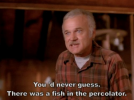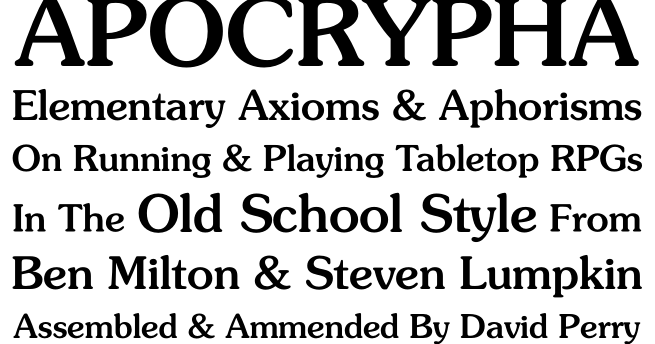TJS
Legendary Pubber
- Joined
- May 5, 2018
- Messages
- 3,668
- Reaction score
- 9,019
It's overly quantified, but if you're stocking a dungeon it's not a bad rule of thumb.I dn;t know r really car what this debate is about, but it loses the minutes it says: "how many encounters of a certain difficulty an adventure should have"
That phrase is the opposite of the thinking behind Old School play.
It's written in an overly prescriptive manner, and should probably be more specific - "This is a breakdown that might work well for a dungeon level, or a random table, but it can be altered based on circumstances or need, or ignored if the logic of the setting dicates otherwise".
I think the prescriptiveness is just based on a notion (which has some merit but I ultimately disagree with) that when teaching beginners you should give them definite information and not wishy washy caveats that just lead to confusion.
Edit: I think the assumption was probably that once people got the general idea they would ignore the prescriptive table (I can forgive them that, because ENworld didn't exist, so there was probably no way of knowing how incapable many gamers are of ignoring anything that looks like a prescription).
Last edited:





 .
.
 .
. ).
).
 !
!
 !
!


